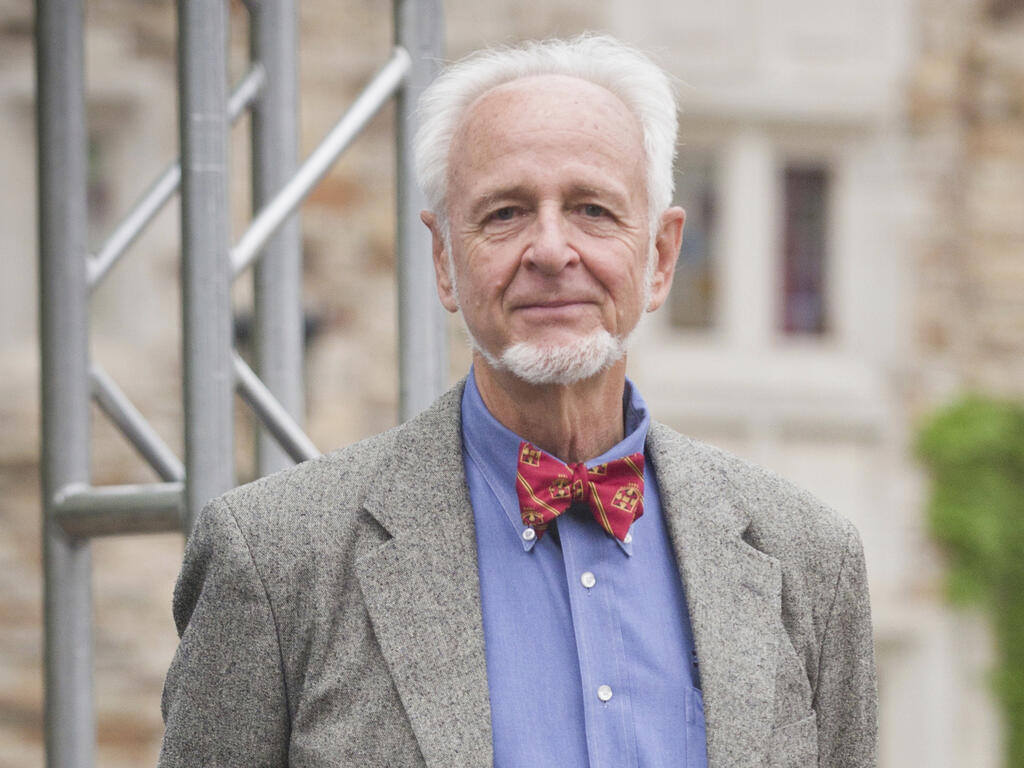Dr. Charles W. Robertson Jr., who is a member of the Rhodes Class of 1965 and co-founder of NanoDrop Technologies Inc. (now Thermo Fisher Scientific), will receive an honorary Doctor of Science at the 174th Commencement of Rhodes College. The ceremony will be held Saturday, May 13, at 8:30 a.m. in the Hubert F. Fisher Memorial Garden on campus. In the event of rain, Commencement will take place in the Bryan Campus Life Center.
Robertson holds a bachelor’s degree in physics from Rhodes and a Ph.D. in physics from Florida State University. He worked for the DuPont chemical company for 29 years before he and his wife, Patricia, founded NanoDrop Technologies in Wilmington, DE, which was acquired by Thermo Fisher Scientific in 2007. Under his leadership, NanoDrop pioneered microvolume instrumentation techniques that allow scientists to quickly and easily quantify and assess the purity of samples such as proteins and nucleic acids. NanoDrop instruments have been utilized in fields such as genomics, proteomics, drug discovery, molecular diagnostics, and bio-manufacturing.
A Rhodes trustee, Robertson and his wife are both members of the Benefactor’s Circle and Rhodes Society and over the years have generously funded various fellowships, projects, and facilities in the sciences. Dedicated in 2017, Robertson Hall on campus is named for Robertson’s parents, Lola and Charles Robertson, who both were Rhodes alumni, scientists, and educators.
Robertson also established the Jack H. Taylor student fellowship and the Charles W. Robertson Endowment for Student Research and Engagement in Physics. His gift of the Zeiss Confocal Microscope System helped support faculty research in the Department of Biology. More recently, Rhodes College has established a $1 million endowment, thanks to the generosity of the Robertsons, that will support faculty-led biology research projects.
In addition, Robertson has worked with students on projects such as the Great NASA Moonbuggy Race. In the spring of 2021, a Rhodes team made up of faculty and students from various majors learned that a proposal for a four-inch cube satellite of their own design, named RHOK-SAT, was accepted by NASA’s CubeSat Launch Initiative. This program provides U.S. universities, high schools, and nonprofit organizations the opportunity to fly their miniature satellites aboard a NASA-sponsored rocket. It was Robertson who encouraged Rhodes to develop a proposal to be submitted to NASA’s CubeSat Launch Initiative and generously provided funding for the project.
Grateful for Robertson’s untiring support, Rhodes awarded him the 2008 Distinguished Service Medal. Now for his continued support and leadership, the college will bestow upon Robertson the Doctor of Science, honoris causa.
